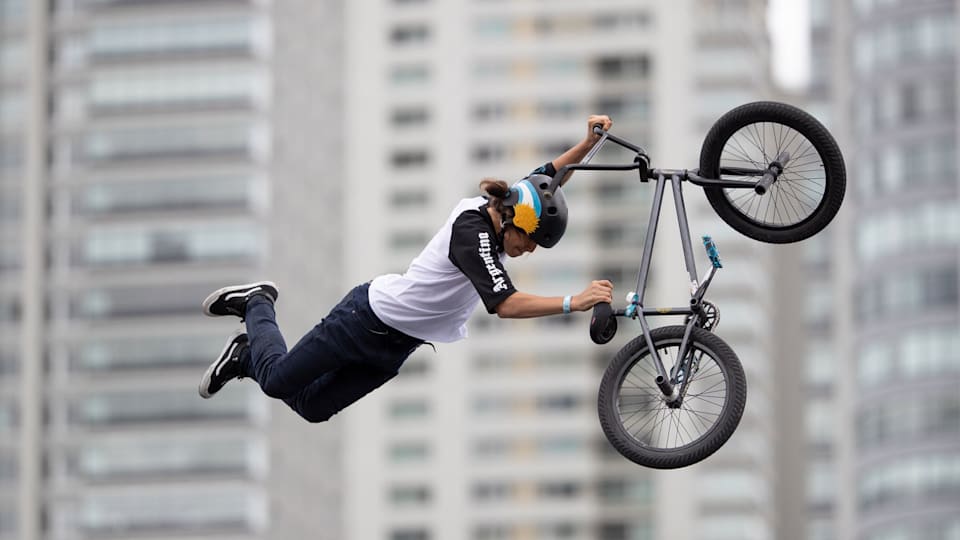Inclusive, urban, innovative and digital: ‘A new era’ for the Youth Olympic Games
Inclusivity, innovation and digital relevance were the key youth-focused themes to be discussed at the 134th IOC Session on the subject of the evolution of the Youth Olympic Games from Buenos Aires 2018 to Lausanne 2020, and on to Dakar 2022.

Buenos Aires 2018 – a game-changer for the Youth Olympic Games
As part of their final report to the IOC Session, the Buenos Aires 2018 organisers outlined the key successes of the third Summer YOG edition that took place last October. Making the Games free for the public to access and as urban as possible, an Opening Ceremony held as a street party and a parks concept across four areas of the city ensured over one million spectators. In addition, over one million students took part in youth engagement activities before the Games started, and an additional 200,000 school children experienced the YOG during Games time.
In collaboration with the IOC and the Olympic Channel, Buenos Aires 2018 led the way as the most digitally consumed YOG to date, with over 230 million online video views and six million unique users on the Games-time digital platforms and app, making sure that young people around the world could also enjoy the YOG.
Finally, for the first time in Olympic history, gender equality was reached at Buenos Aires 2018 with equal numbers of male and female athletes – a feat that will continue at Lausanne 2020, for the first time at an Olympic Winter event.
IOC President Thomas Bach said: “The highest praise goes to Buenos Aires 2018, for having started a new era for the Youth Olympic Games, and by doing so having set a benchmark for future Youth Olympic Games. You have also given inspiration to future organisers of the Olympic Games.”
130,000 young people actively involved so far in Lausanne 2020
The Lausanne 2020 organisers, led by OCOG President Virginie Faivre, gave an update at the SwissTech Convention Centre, just a stone’s throw from the new Youth Olympic Village, the Vortex, built to provide much-needed student accommodation.
The main emphasis was the involvement of young people in every part of the project, starting with the 130,000 school pupils engaged in the development of the Games that will kick off on 9 January 2020; sports workshops, partnerships with universities, and cultural and educational activities have ensured youth have been reached across the regions that will host the Games. Universities and educational institutions have been involved in the development of key projects such as the official song, development of the volunteer programme, design of the mascot and Look of the Games, and the cauldron and medal design, to name a few.
Over the next six months, the Lausanne 2020 organisers will continue to work with the eight host sites to ramp up the youth engagement plans via an ambitious and festive programme called “En Jeux!” that will feature during Games time at all host locations, and will include sports initiations, concerts, shows and educational activities to invite young people not only to watch sport, but also take part.
The search for 3,000 volunteers has started
As a perfect celebration of Olympic Day, on 23 June the Lausanne 2020 volunteer programme opened for registration – www.lausanne2020.sport/volunteers. A total of 3,000 volunteers will be engaged to take part in this unique event and contribute to making the Lausanne 2020 Olympic experience unforgettable for all.
New partners on board
Lausanne 2020 also used this opportunity to announce new partnerships. The ELCA will provide the Games access management platform, and Odlo, the Swiss pioneer in functional sportswear, will provide equipment for 3,000 volunteers and staff. IKEA, the global home furnishing retailer, also joins the roster of Lausanne 2020 partners and will contribute to the furnishing of the Vortex, the Games Youth Olympic Village.
Dakar 2022 – an Olympic first in Africa
Dakar 2022 will be the first Olympic event to take place in Africa. In the context of a new closer collaborative method of working between the IOC and the local Dakar team, the IOC Session received an update on the developments since Dakar was announced as the next Summer YOG host city at the last IOC Session eight months ago.
These developments included the start of the construction of the Youth Olympic Village that is planned as the new campus for Amadou Mahtar Mbow University in Diamniadio for 5,000 students, the Executive Board’s approval in March of the sports programme, and the priority to embed local youth engagement activities into all stages of the organisation.
In line with the YOG methodology of bringing sport to communities, extensive work is underway to refurbish Dakar’s urban sports facilities, such as an athletics stadium, a swimming venue and equestrian and tennis centres in populous neighbourhoods.